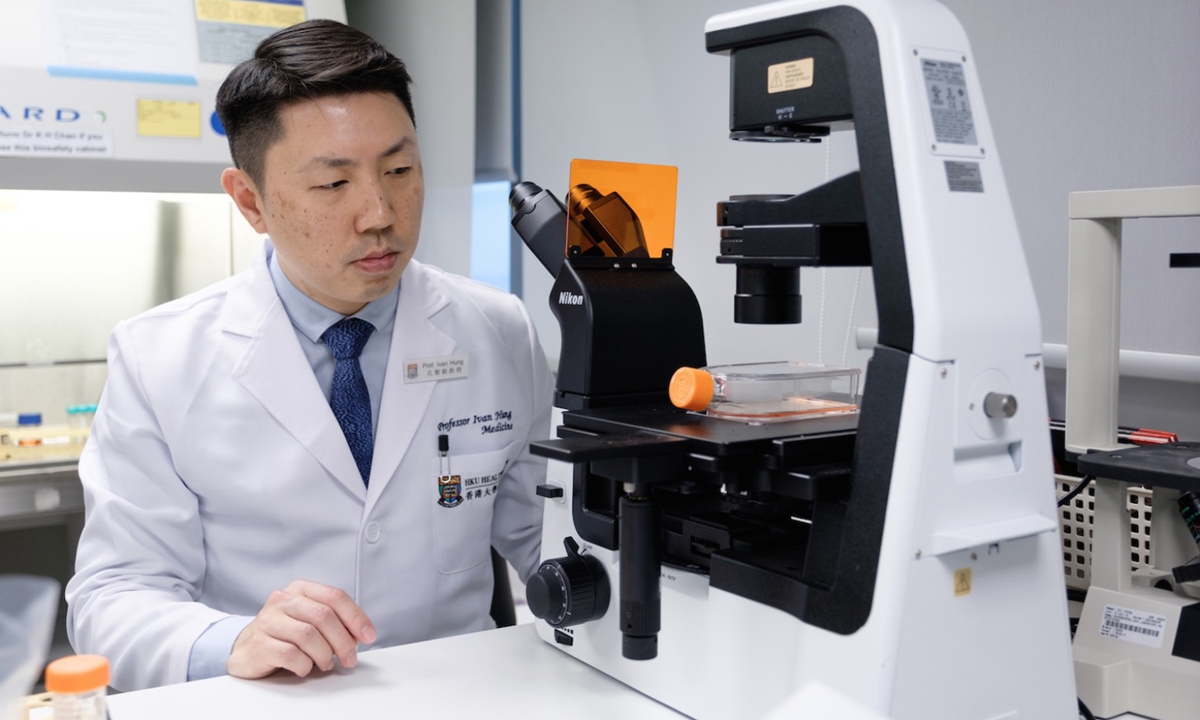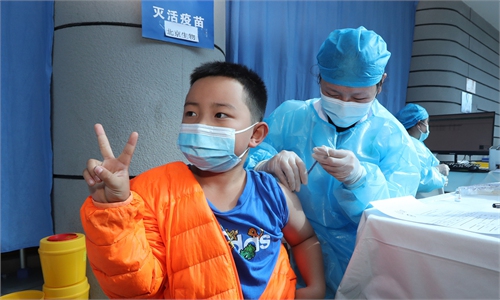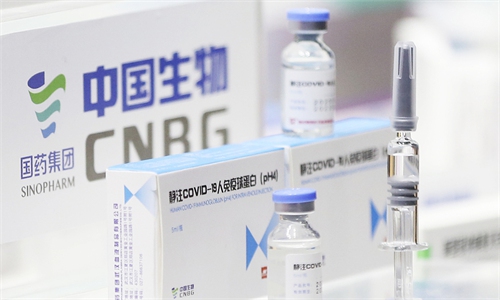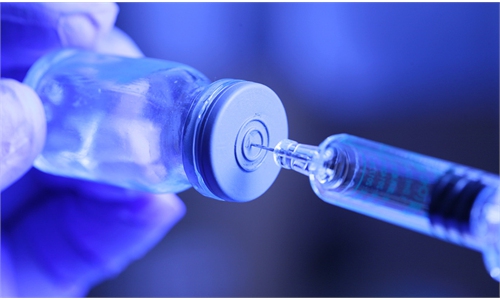
Photo: Courtesy of Professor Ivan Hung
Hong Kong will start clinical tests of Omicron-specific vaccines developed by Sinopharm and Sinovac in May, an expert on a Hong Kong government panel on vaccine effects, told the Global Times, adding that the vaccines are also likely to be effective against sub-variants of Omicron.
An estimated 1,800 people will be involved in the test of the Sinopharm vaccine. They will be divided into three groups and they will receive two of Sinopharm's Omicron-specific vaccines and the original vaccine, Ivan Hung, a clinical professor and assistant dean of the School of Clinical Medicine at the University of Hong Kong, told the Global Times. According to Hung, each subject will be inoculated with two or three shots of inactivated or mRNA vaccines.
He revealed that the design of the clinical trial for Sinovac is similar to that of Sinopharm, but with a smaller scale of more than 300 subjects.
Two homegrown Omicron-specific COVID-19 vaccine candidates developed by Sinopharm and Sinovac Biotech have been approved for clinical trials by China's top drug regulator, the two companies said on April 26. The two vaccines were already cleared for clinical trials in Hong Kong in mid-April.
Hung said that researchers will closely study the vaccines' effect in neutralizing antibodies and their safety four weeks after subjects get the jabs. The fact that the COVID-19 outbreak has still not ebbed away in Hong Kong gives researchers an opportunity to observe the protection the vaccines provide.
In an interview with the Global Times on Wednesday, Zhang Yuntao, a chief scientist with China National Biotec Group, Sinopharm's subsidiary, said that the R&D for Omicron-specific vaccines is very similar to that for the original vaccine. In the upcoming clinical tests, research teams will focus on whether the vaccines can trigger antibodies that target the specific aspects of the Omicron variant.
Hung estimated that the research result will be generated three or four months after the clinical trials, and hopefully relevant data can be published in half a year.
Meanwhile, sub-variants of Omicron are emerging faster that those of other coronavirus variants. From November 2021 until now, health authorities worldwide have tracked its sub-variants BA.1 and BA.2, as well as BA.1.1 and BA.3. In mid-April, they also added BA.4 and BA.5 to the list for monitoring.
Hung said that Hong Kong's clinical test of the two home-grown vaccines is based mainly on the BA.1 sub-variant found in the city, but he estimated that the vaccines will provide effective protection against sub-variants such as BA.2 and XE.
The top health body in the Chinese mainland said in late march that 88.01 percent of the population has received booster shots, and statistics in Hong Kong show the rate in the city is roughly 41.8 percent. Whether to roll out fourth or fifth doses of booster jabs for the public has also generated debate. In an earlier interview with the Global Times, Zhang said that based on the current statistics, a fourth dose won't generate higher antibodies than the third dose, so whether to start fourth doses has yet to be determined.
Hung said that in the short term, the public need a dose of COVID-19 vaccine to boost their antibodies each Winter. Maybe in two or three years, when the coronavirus is not undergoing major mutations, the situation will change, said Hung.
The Hong Kong professor also stressed that the COVID-19 vaccination rate among elderly people is relatively low in both the mainland and Hong Kong. This needs to be remedied, Hung noted, saying that the vaccination rate among the elderly should reach 90 percent.




